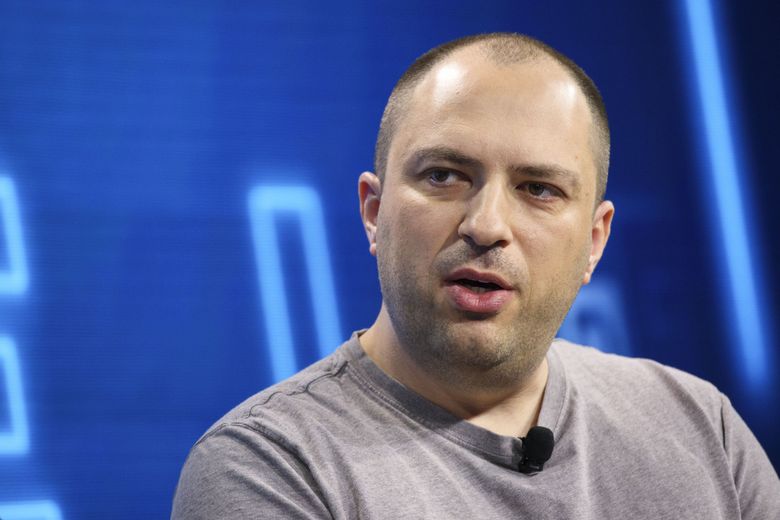JAN KOUM, WhatsApp founder, plans to leave after broad clashes with parent Facebook
 WhatsApp CEO Jan Koum, seen here in October 2016, is planning to leave the company after clashing with its parent, Facebook. MUST CREDIT: Bloomberg photo by Patrick T. Fallon
WhatsApp CEO Jan Koum, seen here in October 2016, is planning to leave the company after clashing with its parent, Facebook. MUST CREDIT: Bloomberg photo by Patrick T. Fallon
Jan Koum disagreed with the parent company over the strategy for the popular messaging service and Facebook’s attempts to use its personal data and weaken its encryption.
SAN FRANCISCO — Jan Koum, the billionaire chief executive of WhatsApp, is planning to leave the company after clashing with its parent, Facebook, over the popular messaging service’s strategy and Facebook’s attempts to use its personal data and weaken its encryption, according to people familiar with internal discussions.
Koum, who sold WhatsApp to Facebook for more than $19 billion in 2014, also plans to step down from Facebook’s board of directors, according to these people. The date of his departure isn’t known. He has been informing senior executives at Facebook and WhatsApp of his decision, and in recent months has been showing up less frequently to WhatsApp’s offices on Facebook’s campus in Silicon Valley, according to the people.
The independence and protection of its users’ data is a core tenet of WhatsApp that Koum and his co-founder, Brian Acton, promised to preserve when they sold their tiny startup to Facebook. It doubled down on its pledge by adding encryption in 2016. The data clash took on additional significance in the wake of revelations in March that Facebook had allowed third parties to mishandle its users’ personal information.
Facebook, though, needs to prove that its investment in WhatsApp – its largest acquisition ever – was worth it.
Facebook declined immediate requests for comment.
Koum’s exit would be highly unusual at Facebook. The inner circle of management – and the Board of Directors – have been fiercely loyal during the scandals that have rocked the social media giant. In addition, Koum is the sole founder of a company acquired by Facebook to serve on its board. Only two other Facebook executives – CEO Mark Zuckerberg and Chief Operating Officer Sheryl Sandberg – are members of the board.
Acton left the company in November. He has joined a chorus of former executives critical of Facebook. Acton recently endorsed a #DeleteFacebook social media campaign that has gained force in the wake of the data privacy controversy sparked by Cambridge Analytica, the political marketing firm tied to the Trump campaign, had inappropriately obtained the private information of 87 million Facebook users.
Though the Cambridge Analytica revelations contributed to a climate of broader frustration with Facebook among WhatsApp employees, Koum made his decision to leave prior to the scandal, the people said.
WhatsApp, with 1.5 billion monthly users, is the largest messaging service in the world. It is most popular in countries such as India, Egypt, and Brazil, and in Europe, where it is used for phone calls and text messaging with friends and businesses, as well as news distribution and group chats.
Koum and Acton, former coworkers at Yahoo, founded WhatsApp in 2009. It promised private communications for 99 cents a year. By 2014, the tiny company had almost 500 million users. It caught the attention of Zuckerberg, who was looking to expand the social network overseas. After a dinner at Zuckerberg’s house, Zuckerberg made an offer for WhatsApp that turned Acton and Koum into instant billionaires.
